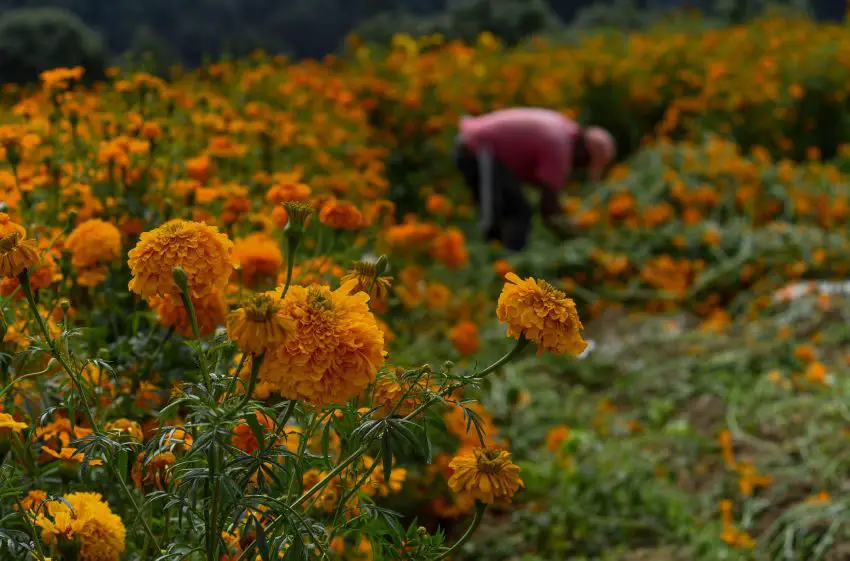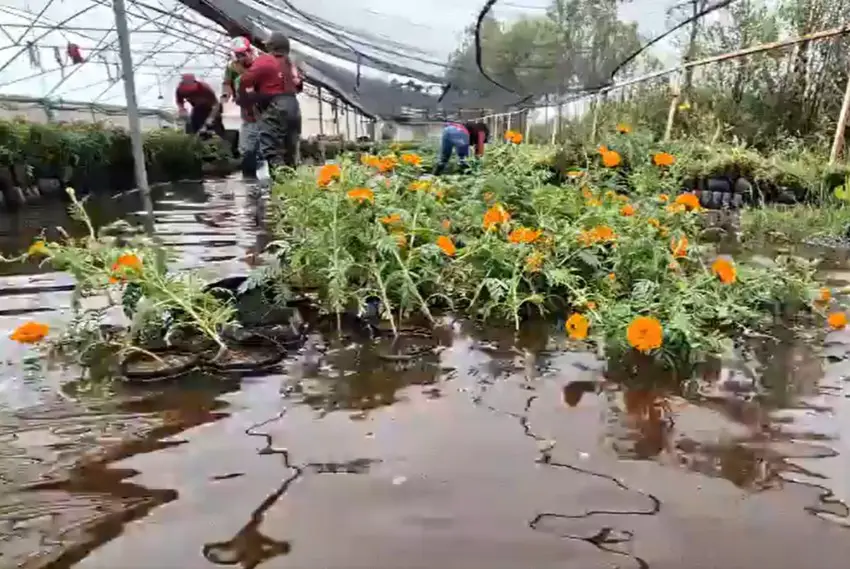Heavy rains damage Mexico’s Day of the Dead cempasúchil crops

The yellow-orange cempasúchil, or marigold flower, that adorns Day of the Dead altars in Mexico could be in short supply this year as heavy rains have flooded fields and greenhouses in various growing regions, including the Xochimilco borough in Mexico City.
Growers in Xochimilco say they could lose up to 50% of their cempasúchil crop after intense rains left about 80% of their flowers under water. One grower told the newspaper El Universal that he’d lost 20,000 of his 25,000 plants.

El Universal reported that the total cash value of the lost cempasúchil crop — the primary income for many families in Xochimilco — comes to about 500,000 pesos (approximately US $25,600).
The Mexico City growers were not the only ones hard-hit by heavy rains. According to newspaper El Financiero, the states of Guerrero, Michoacán, Oaxaca and Puebla have also seen damage to their cempasúchil crops.
This will mean higher prices for the flowers this season.
Last year, the flowers cost approximately 4 or 5 pesos each, but this year consumers might have to pay up to 7 pesos per flower, according to Cuauhtémoc Rivera, a representative of the National Small Business Alliance (ANPEC) who spoke to El Financiero.
The weather agency Meteored warned of the impact of climate change on the flower crop back in June just as cempasúchil planting season was getting underway.
“Variations in temperature and precipitation patterns could alter cultivation cycles and affect the quality of the flowers,” Meteored reported, warning that climate change could endanger the profitability of cempasúchil production and gradually reduce suitable areas for cultivation.


Mexico is one of the world’s primary producers of the flower, known taxonomically as tagetes erecta with Puebla, Guerrero, Jalisco, Michoacán, Morelos and Oaxaca among the top growing states.
Last year, growers in Mexico dedicated about 2,448 hectares to cempasúchil cultivation, a portion of which is exported to the United States and Europe.
Farmers in Mexico have been taking steps to address the challenges presented by climate change, Meteored said by adapting new, more resilient cultivation techniques and working to create more resistant varieties.
Still, some farmers have been forced to sell off parcels of land, as they face increases in costs of production and labor.
With reports from El Universal, El Financiero and Meteored
Source: Mexico News Daily

